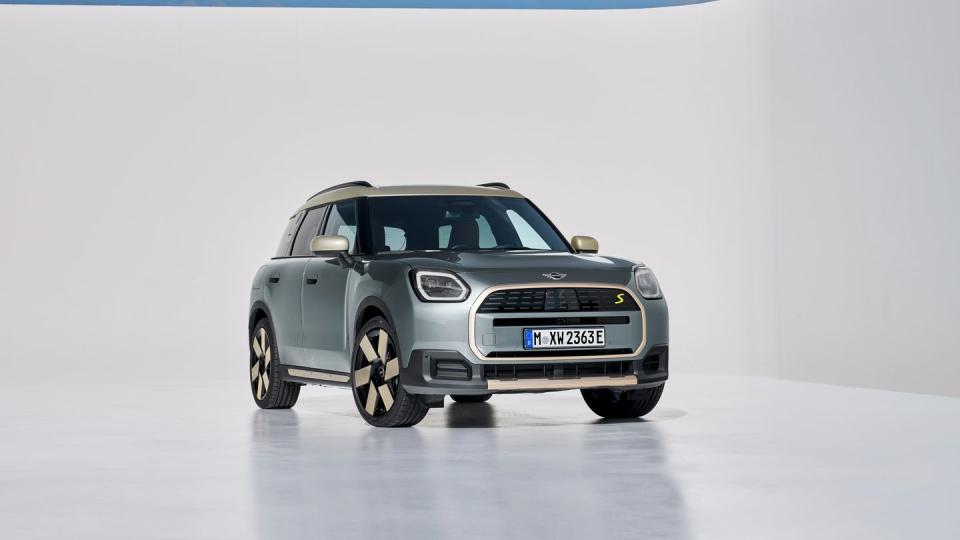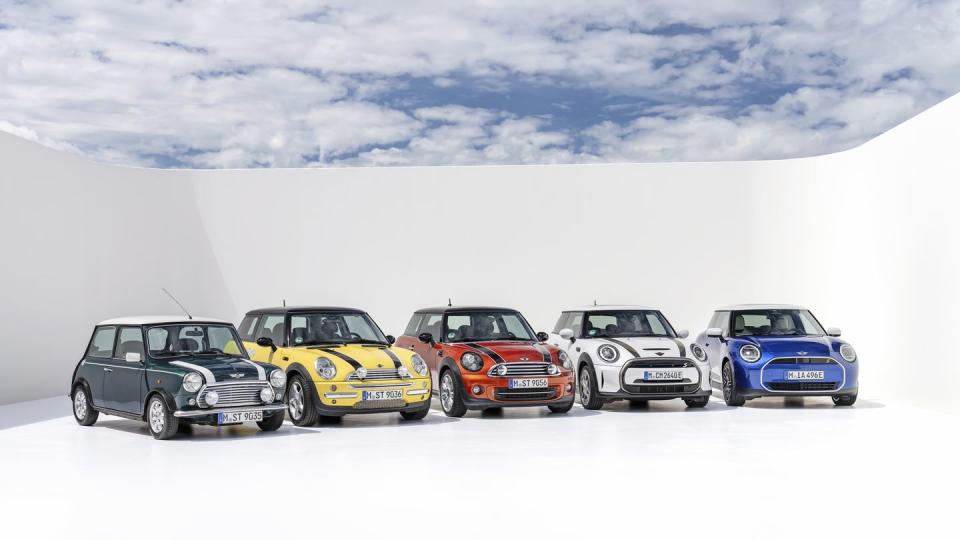BMW’s $750 Million Investment Will Help Mini Go All-Electric

Mini already showed us its new electric lineup for the coming model years, but it didn't exactly tell us how or where it would make these models.
However, parent company BMW AG has it covered, with an injection of $750 million into Mini's United Kingdom manufacturing facilities, specifically in Oxford.
Retooling the plants will be essential, but Mini is also relying on a joint venture with Chinese automaker Great Wall Motors to build and export additional EV Minis.
Just last week, Mini announced an all-new lineup of electric vehicles. Bigger batteries, longer range figures, and a more robust chassis characterize the electrified Cooper and Countryman model, but a more existential question faces the German-owned, English-based brand.
That is, how exactly will Mini make such a big push toward electrification? Even after being purchased by BMW in 1996, Mini continued to produce its pint-sized hatchbacks in the United Kingdom, with facilities stretching from Oxford to Birmingham. Notably, Countryman production was outsourced to Austria in 2010, though that may soon change.

With a $750 million injection from executives in Bavaria, it's clear that Mini won't struggle to reinvent itself in the coming years. This massive investment could pay dividends in the near future, too, as Mini says this new capital will be used for retooling and refreshing its Oxford and Swindon plants for electric-vehicle production.
"Mini has always been aware of its history—Oxford is and remains the heart of the brand. The continuing high demand for our locally emission-free vehicles shows the openness of the global Mini community to electromobility, which we will be able to serve optimally, also thanks to Oxford," said Stephanie Wurst, Head of Mini.
Specifically, the new electric Mini Cooper and Mini Aceman (so far, seen only in concept form) will be produced in the Oxford plant, starting in 2026. Additionally, that facility will actually be all-electric come 2030, building on its initial 2019 retooling. Notably, battery production will not occur there, according to Milan Nedeljković, Member of the Board of Management of BMW AG.
That's partially because Mini had yet to reveal battery details for its newest models, including the supplier and sizing, in some cases. Nedeljković said the brand is still shopping around, though he did confirm Mini will use batteries made in Europe, according to Reuters.

But the production news doesn't stop there, as Mini announces it will also manufacture the new electric Cooper and Aceman models at an independent factory in China, starting two years earlier, in 2024.
Based in Zhangjiagang, Jiangsu Province, Mini says this facility is a joint venture between Chinese EV competitor Great Wall Motors. Producing the same vehicles in two locations says Mini and Munich see big demand down the road. This might be overly optimistic.
While the Cooper models will continue to be produced in Oxford, the new Countryman model is about to change locations, moving to BMW's Leipzig plant for future production. This is likely due to the shared BMW UKL2 platform that the Mini Countryman rides on, joining its more refined BMW X1 sibling.

Ultimately, this injection from BMW is as much about supporting the United Kingdom as it is about electrification, experts say. The Financial Times says $94 million of UK taxpayer money is included in that $750 million, though the result for UK auto workers will be net positive.
After the initial electric Mini Cooper model struggled to gain popularity, the Oxford plant faced irrelevancy, with BMW previously stating it would solely produce ICE Minis there. However, with a plan for retooling and a clear path to electrification, the future of the plant and its 4000 workers remains stable for now.
"This decision is a big vote of confidence in the UK economy and the work of this government to ensure the continued strength of our world-leading automotive sector," said UK Business and Trade Secretary Kemi Badenoch.
This announcement follows an investment of $5 billion from Tata Group into Jaguar Land Rover's battery build-out. Similarly, BMW fleshed out Mini's metal stamping facility in Swindon, UK, late last year, for a total investment of $3.7 billion into Mini's UK facilities. Even so, China's BYD says the UK is still far from ideal for EV manufacturing.
How should government subsidies play into EV manufacturing? Should they at all? Please share your thoughts below.

 Yahoo Autos
Yahoo Autos 